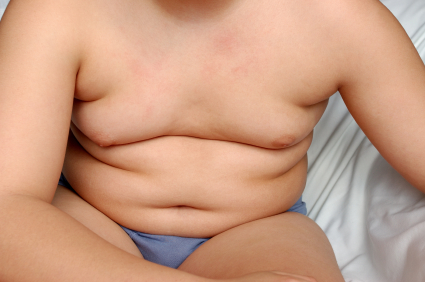Childhood obesity has become a national healthcare crisis in recent years. Children who are obese as preschoolers are at increased risk for adolescent and adult obesity, as well as an increased risk of developing many chronic diseases, including diabetes, hypertension, hyperlipidemia (high cholesterol), asthma, and sleep apnea, as well as emotional problems such as low self-esteem and depression. It has even been estimated that if obesity rates continue as they are, today’s generation of children will be the first generation to not outlive their parents. Therefore, we have a lot at stake!
There are many causes leading to childhood obesity and it will take a village to solve this crisis. However, as parents there are many things that can be done to reduce the risk of childhood obesity, while improving the child’s quality of life and self-esteem. Here are just a few Parenting Meal-time Tips for Preventing Childhood Obesity:
Control portion sizes. Measure serving sizes initially and think in terms of cups and half-cups. Serve ice cream in small bowls, not cereal bowls.
Never ever “super-size” when eating out. Think small. Order a small hamburger and replace the fries with a fruit or vegetable. Although the portion size for most kid’s meals is appropriate, avoid fried kid’s meals as much as possible. Order low-fat milk instead of soda or shakes.
Avoid the kid’s menu when eating out in sit-down restaurants. The choices are generally not very healthy and they are limited. Teach children how to order from the menu creatively to get smaller portions and/or to split orders or share menu items.
Don’t even buy it!—chips, soda, doughnuts, candy, etc. If you buy it, you eat it. If it is not in the house, it won’t be eaten.
Fill the pantry and refrigerator with healthy foods the children like. Place fruits and vegetables in clear sight so they can just ”grab and go” as often as possible.
Do not buy soda and limit 100% juices to only ½ cup per day. There is no room for carbonated and sugar-laded beverages in growing bodies (or even a parent’s body).
Limit the locations for eating to the kitchen and dining room. Avoid bedrooms and eating food in front of the TV or computer. This may also help reduce screen time.
Have your children ask for snacks—parents have more control this way.
Eat as a family when possible. This cultivates good family relations and good role modeling is more easily learned.
Plan on having set meal times. This helps prevent hunger and consuming less healthy foods.
Shut off the TV during family meals. Concentrate on the food and the family!
Place vegetables on their plates. Try one bite for every year of age.
Don’t forbid treats. Less available, yes—but not completely banned or you could foster an obsession.
Be alert to frequency of unhealthy fast-food consumption. Avoid as much as possible!
Avoid snack foods purchased in bulk at warehouse-style markets. These are usually high in fat and sugar, and low in nutrition.
Limit TV/computer time. Get outside and play!
Be a role model for an active lifestyle. Kids will pick-up your good (and bad) habits.
Avoid nagging your child about any food. Being a good role model and providing the appropriate foods will work better than nagging.








